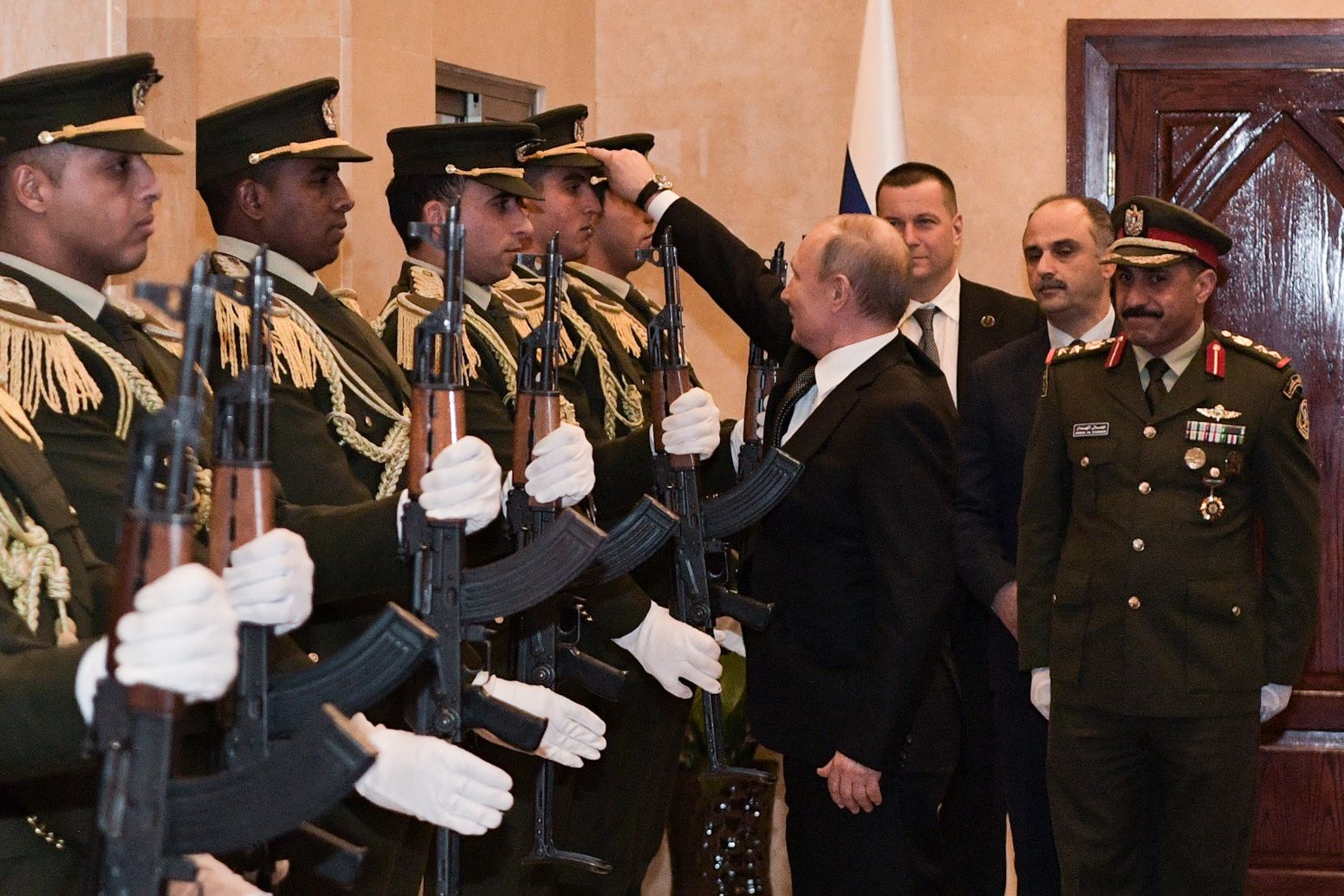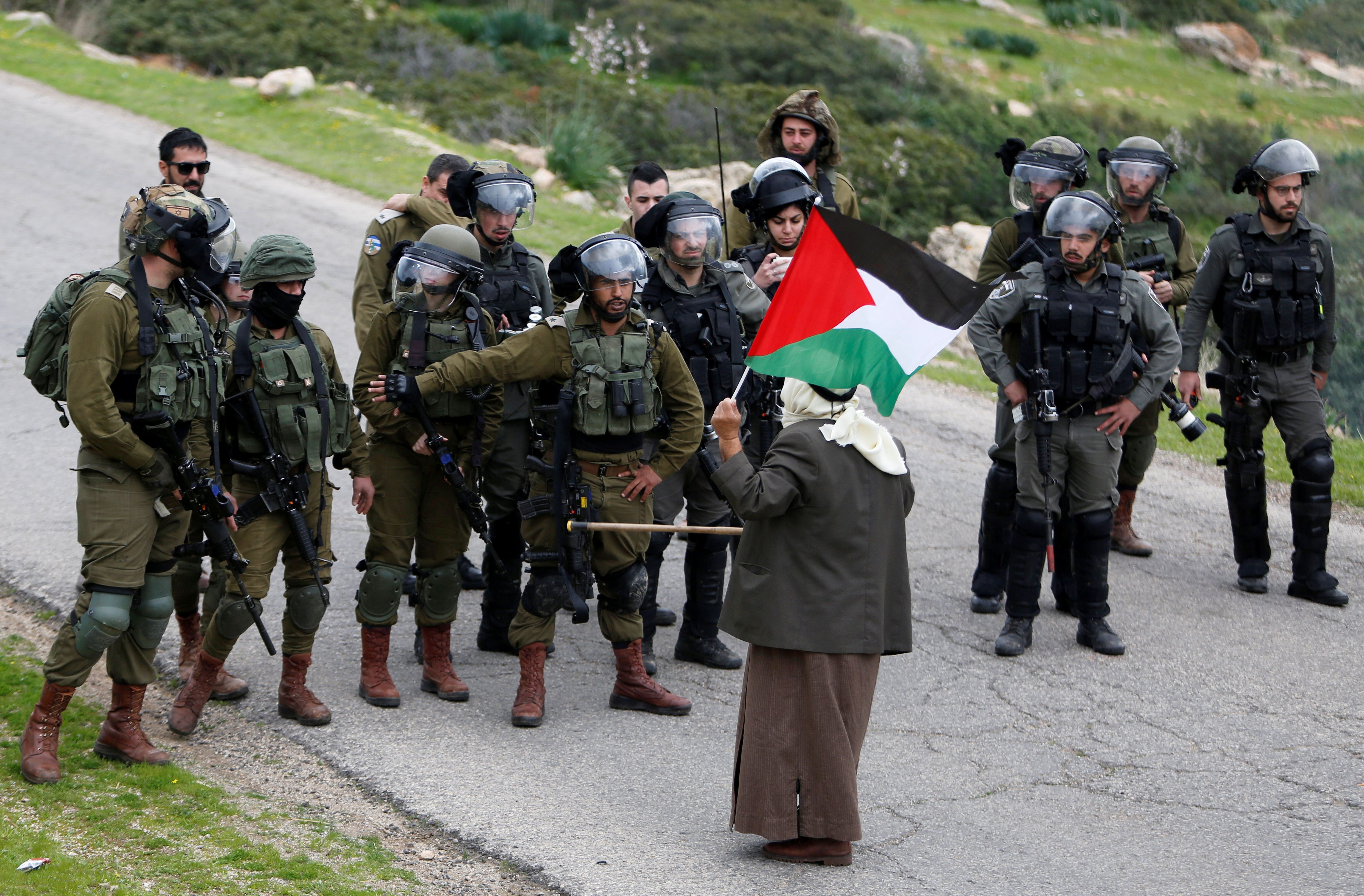Palestine in Russia’s Foreign Policy

Russia is one of the most important political patrons of the Palestinians among the global powers. The close relations established by the USSR survived the end of the Cold War and deepened with Fatah, which controls the main Palestinian institutions—the Palestine Liberation Organisation (PLO) and the Palestinian Authority (PA). Enhanced cooperation with Palestine in recent years has its origins in the intensification of Russian foreign policy towards the Middle East, visible since the intervention in the Syrian civil war in 2015. Russia’s actions with the Palestinians, however, mainly focus on diplomacy, as it exploits stagnation in the Israeli-Palestinian peace process and the collapse of PA-U.S. relations under President Donald Trump. At the same time, these actions are part of Russia’s wider strategy of strengthening ties with a wide range of entities and participating in the most important political processes in the Middle East, such as the Israeli-Palestinian conflict.
Relations in Recent Years
Russia and Palestine maintain a high frequency of contact, which includes annual heads of state meetings. President Mahmud Abbas visited Russia eight times between 2014 and 2020, meeting President Vladimir Putin. The Russian president during his current term has paid two visits to the PA (2012 and 2020). During intergovernmental meetings (e.g., a visit by the then Prime Minister Dmitry Medvedev to Palestine in 2016), the parties signed a number of agreements regarding economic cooperation, exclusive economic zones in the West Bank, and others.
The specificity of the Russian approach is to hold a permanent political dialogue (at the foreign ministry level) not only with the PA leadership but also with other Palestinian groups, primarily with Hamas, which rules the Gaza Strip. Russia, unlike the U.S. and EU, does not recognise Hamas as a terrorist organisation, which allows the group to break international isolation and strengthen its position in the intra-Palestinian rivalry with Fatah. Seven official meetings between Hamas delegations and Russian ministers have taken place since 2015 (not counting other forms of consultation). In March, the head of the Hamas Politburo, Ismail Haniyeh met in Moscow with Russian Minister of Foreign Affairs Sergei Lavrov. Russia also has provided humanitarian aid to the Gaza Strip after major escalations between Israel and Hamas (e.g., in 2014).
A visit to Russia in March was made by Ziyad al-Nakhalah, the secretary-general of the Palestinian Islamic Jihad (PIJ), an Islamist group supported by Iran and operating in the Gaza Strip. The meeting caused a protest by Israel because Russia, like with Hamas, does not recognize the PIJ as a terrorist organisation. In 2020, Russia’s foreign ministry organised meetings with delegations from smaller Palestinian groups, including the Popular Front for the Liberation of Palestine and the Democratic Front for the Liberation of Palestine, which are outside the current Palestinian government. A permanent element of Russian policy is supporting Palestine in voting in multilateral organisations, primarily in UN bodies and agencies
At the same time, the strengthening of relations has not translated into an aid increase. Russia is not a significant donor: since 2013, (except for 2016, when it did not make a payment), Russia has given the United Nations Agenda for Relief to Palestinian Refugees in the Middle East (UNRWA) only $2 million annually (for comparison, Italy gives about $15 million). The economic dimension of Palestinian-Russian relations also remains limited, although intensification in recent years is visible. Trade increased from $1 million in 2012 up to $5 million in 2018 (World Bank data, Palestinian sources indicate an increase from $10 million to $17 million), of which over 95% was imports from Russia (mostly food and intermediate goods). Some Palestine goods are duty-free in trade with the Eurasian Economic Union. Negotiations are underway regarding investments in special industrial zones in the PA. Religious tourism remains an important sector—about 90% of the 380,000 Russian tourists a year are pilgrims. They travel to Christian holy sites, including those important to the Moscow Orthodox Church, primarily in Bethlehem.
Regional Aspects
Russia is actively involved in political processes in the region and is particularly active in supporting intra-Palestinian reconciliation attempts. In 2017 and 2019 in Moscow, talks were hosted between Fatah and Hamas. The latest intensification of the political dialogue with a wide spectrum of Palestinian parties indicates preparations for a new initiative in this area. Russia also acts as a mediator between the Palestinian parties and Middle East states, primarily Syria. Russia’s support of this state has enabled the restoration of relations between Hamas and the Assad regime, broken in 2012 as a result of the civil war. Russia also has provided support (e.g., training) for pro-government Palestinian groups fighting in Syria, including the group Liwa al-Quds (Jerusalem Brigade). Strengthening relations with Hamas and PIJ is negatively perceived by Israel, which views them as terrorist groups. However, given the priority of maintaining the agreement with Russia enabling Israeli combat operations in Syria, Israel’s countermeasures and criticism are limited. Further strengthening of Russia’s position as a Palestinian partner may increase the former’s role as an intermediary for Israel, for example, in the current negotiations with Hamas on a prisoner exchange.
Russia’s positions regarding the Middle East regularly refer to the Israeli-Palestinian conflict as one of the main destabilising factors in the region. Together with the EU, the UN, and the U.S., Russia is a member of the “Middle East Quartet”, a format aimed at strengthening the peace process. Russia has announced its readiness to conduct negotiations between Israel and the Palestinians (e.g., in 2016). Israel rejected the proposal, seeing the mediator as an exclusive role of the U.S.
Russia has taken a stance critical of the Trump peace plan, as it did with earlier pro-Israel decisions of the U.S. administration, which Russia then has used to relativize its own violations of international law. Russian involvement in Palestinian affairs also provides a platform for cooperation with other Arab states active in this area, such as Egypt or Qatar. In addition, Russia may exploit its support for the Palestinians in its anti-American and anti-EU messaging to Muslim public opinion around the world.
Perspectives
The development of Russia’s relations with Palestine should be considered an integral element of the former’s “return” to the Middle East. Its long-term goal is to weaken the position of the U.S. and its allies in the current international order. Russia’s activities are still mainly of a diplomatic nature, although they can be extended to other areas, such as economic. Attempts at reconciliation between Fatah and Hamas will be a priority, and Russia's involvement is possible in the inevitable succession process in the PA. Hamas—dependent on external support and seeking to function as a fully-fledged international entity—is particularly interested in intensifying relations. Russia can also act as a political patron of alternative peace initiatives by Palestine regarding the conflict with Israel. Russia may also use its influence in Syria to increase pressure on Israel if it follows through with its announced unilateral implementation of the Trump peace plan.
The growing Russian influence on the political situation in Palestine should be properly balanced by the EU, which remains the entity providing the largest development and diplomatic support for the PA. Effective EU assistance, in addition to the material dimension (e.g., in countering the COVID-19 pandemic), must, however, include an attractive political component for the Palestinians, such as support for future elections or the extension of Palestine’s international recognition. At the same time, caution from the EU is advisable towards diplomatic initiatives—used opportunistically by Russia—regarding the Israeli-Palestinian conflict.





